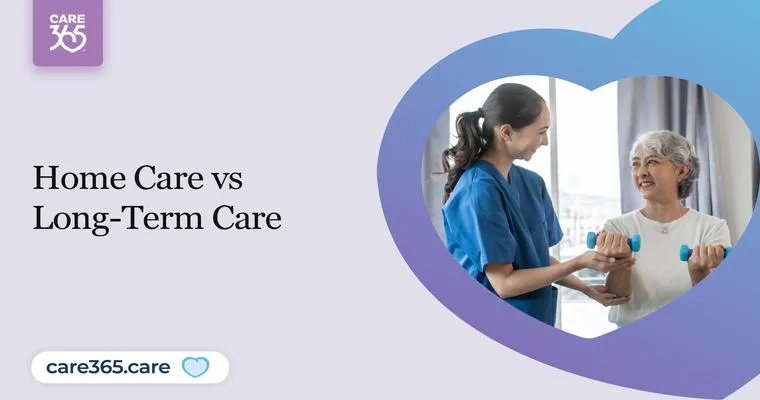When considering care options for yourself or a loved one, understanding the differences between "short-term home care" and "long-term home care" is crucial. Both types of care serve unique purposes and cater to different needs, making it essential to identify which one is most suitable for your situation. This article will explore the key differences, benefits, and considerations for both short-term and long-term home care.
What is Short-Term Home Care?
"Short-term home care" typically refers to non-medical or medical assistance provided for a limited duration, often following a hospital stay, surgery, or during recovery from an illness. This type of care can last from a few days to a few weeks, depending on the individual's recovery needs. The primary objective of short-term home care is to ensure a safe and supportive environment while the patient heals.
Benefits of Short-Term Home Care
1. "Flexibility": Short-term home care is often tailored to meet immediate needs, providing assistance with daily activities such as bathing, dressing, and meal preparation.
2. "Cost-Effective": Since it is temporary, short-term home care can be less expensive compared to prolonged care options, making it a suitable choice for those with limited budgets.
3. "Transitional Support": It helps individuals transition from hospital to home, ensuring they receive the necessary support to recover effectively.
What is Long-Term Home Care?
In contrast, "long-term home care" is designed for individuals who require ongoing assistance due to chronic illnesses, disabilities, or age-related decline. This type of care is intended to provide support over an extended period, which can range from several months to years. Long-term home care aims to enhance the quality of life for individuals who may have difficulty managing daily tasks independently.
Benefits of Long-Term Home Care
1. "Continuity of Care": Long-term care offers consistency, allowing caregivers to build strong relationships with their clients, which can lead to better emotional support.
2. "Personalized Care Plans": Care can be customized to meet the unique needs of the individual, addressing both medical and non-medical requirements.
3. "Improved Quality of Life": With ongoing support, individuals can maintain their independence and enjoy a higher quality of life in the comfort of their own home.
Key Considerations
When deciding between "short-term home care" and "long-term home care", several factors should be considered:
1. "Health Status": Evaluate the medical needs and recovery goals of the individual requiring care. Short-term care may be more suitable for those recovering from an acute condition, while long-term care is ideal for chronic illnesses.
2. "Financial Resources": Analyze your budget and insurance coverage, as short-term care may be more affordable in the short run, but long-term care can provide more comprehensive support.
3. "Caregiver Availability": Consider if family members can provide assistance or if professional caregivers are necessary. Short-term care may require less commitment from family, while long-term care might necessitate professional involvement.
Conclusion
In summary, both "short-term home care" and "long-term home care" play vital roles in supporting individuals with varying needs. Understanding the differences and benefits of each type of care can help you make informed decisions that best suit your situation. Whether you are looking for transitional support during recovery or ongoing assistance for a chronic condition, choosing the right type of home care can significantly impact the overall well-being of you or your loved one.





